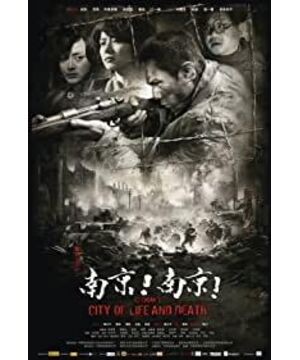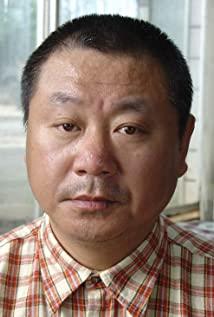At the last glance back, Jiang Shuyun grieved and decided.
Jiang Shuyun died at the end of the film. It was the disappearance of this beautiful image that made the Japanese soldier, Kadokawa, finally wake up, collapse, and end his life on his own. The fall of Jiang Shuyun is exactly the shattering of Nanjing's remaining beauty, and it is Nanjing's most mournful song and cry. "Nanjing! Nanjing!" presents a lot of unforgettable video moments, but none of them seems to reflect the whole film's theme and flavor more than the ending, when Jiao Chuan raises his gun and knocks Jiang Shuyun, played by Gao Yuanyuan, to the ground.
The image of the last Chinese who died The beautiful, intellectual, and noble. Jiang Shuyun became the last Chinese to die in the film, which made her image sublime into a symbolic symbol of the film: Nanjing, an ancient cultural city, was the city of Nanjing at that time. The Chinese sons and daughters contained within it; the cultural spirit represented by the city; the brilliance of righteousness and humanity displayed by the people; and all the final beauty are all heartbreaking in this final shot.
Anyone who has watched "Schindler's List" will be deeply impressed by the image of the little girl in red in the film. When countless massacres and corpses make you shocked and even tired, it is the image of such a beautiful little girl that makes people feel. The acceptability exceeds the tolerance limit. This has to be said to be the genius of Spielberg. "Nanjing! Nanjing! The image of Jiang Shuyun in "The Image of Jiang Shuyun also has a similar meaning, which ultimately overloads the audience's tolerance for war and death—no matter how many realistic and cruel scenes there are, what the movie wants to give the audience is an artistic situation; Compared with the classic scene where Chinese women in the church resolutely raise their hands to be comforted by other refugees (the background music contributes greatly to this scene), Jiang Shuyun's death has no background music, but a terrifying silence that can only be heard. Kadokawa's gasping, only to see the camera shake from shaking to rushing, until the gunshot.
A dream about Zhang Chunru. Director Lu Chuan said that Jiang Shuyun was one of his dreams. Jiang Shuyun scolded the Japanese officers. Jiang Shuyun comforted the raped woman. Jiang Shuyun changed his turban three times to save people, and the Nanjing historian who read the script exclaimed: "How dare this person confront the Japanese?" And I think Jiang Shuyun's image condenses the director's opposition. "Nanjing! Nanjing!" The biggest effort in this film is If we say that Lu Jianxiong, played by Liu Ye, is a Chinese man who "should appear in the historical scene", then Gao Yuanyuan is also a Chinese woman who "should appear in the historical scene". Lu Chuan has said many times that Jiang Shuyun's prototype is Zhang Chunru, a Chinese female writer who disclosed the "Nanjing atrocities" in the Western world. Under the intimidation and threat of Japanese right-wing forces, Zhang Chunru committed suicide due to depression. Lu Chuan deliberately portrayed Jiang Shuyun as a Zhang Chunru who was placed in the historical scene, which may be more worthy of pondering because, in addition to the identity of a woman, Jiang Shuyun's identity as a returned teacher is also worth pondering. Is saving the refugees in Nanjing just a bloody death? Shouldn't there be another sacrifice that is more determined, rational, and humiliating?
Gao Yuanyuan's brilliance is commendable. Gao Yuanyuan is always "Nanjing! Nanjing!" The most beautiful and brightest creation among the creators. For the sake of this heavy stroke, Jiang Shuyun didn't cut her hair because of her special status, and she didn't volunteer and devote herself to the issue of comfort women, all of which can be seen as a special arrangement made by director Lu Chuan to keep her at the end. Of course, we do admit that the image of Jiang Shuyun is relatively thin in the first half of the film, which is probably inevitable for a group drama film. Gao Yuanyuan's screen image has always been beautiful and refined, and Lu Chuan obviously liked her temperament, which is rare among domestic actresses. There are several types of Chinese actress; some are quirky like Zhou Xun, some are sharp-edged like Zhang Ziyi, and some are more coquettish and sexy like Fan Bingbing. Only when their true colors do their job do they show their irresistible brilliance. Gao Yuanyuan obviously belongs to another kind, her inner greenness and intelligence are unique.
View more about City of Life and Death reviews











